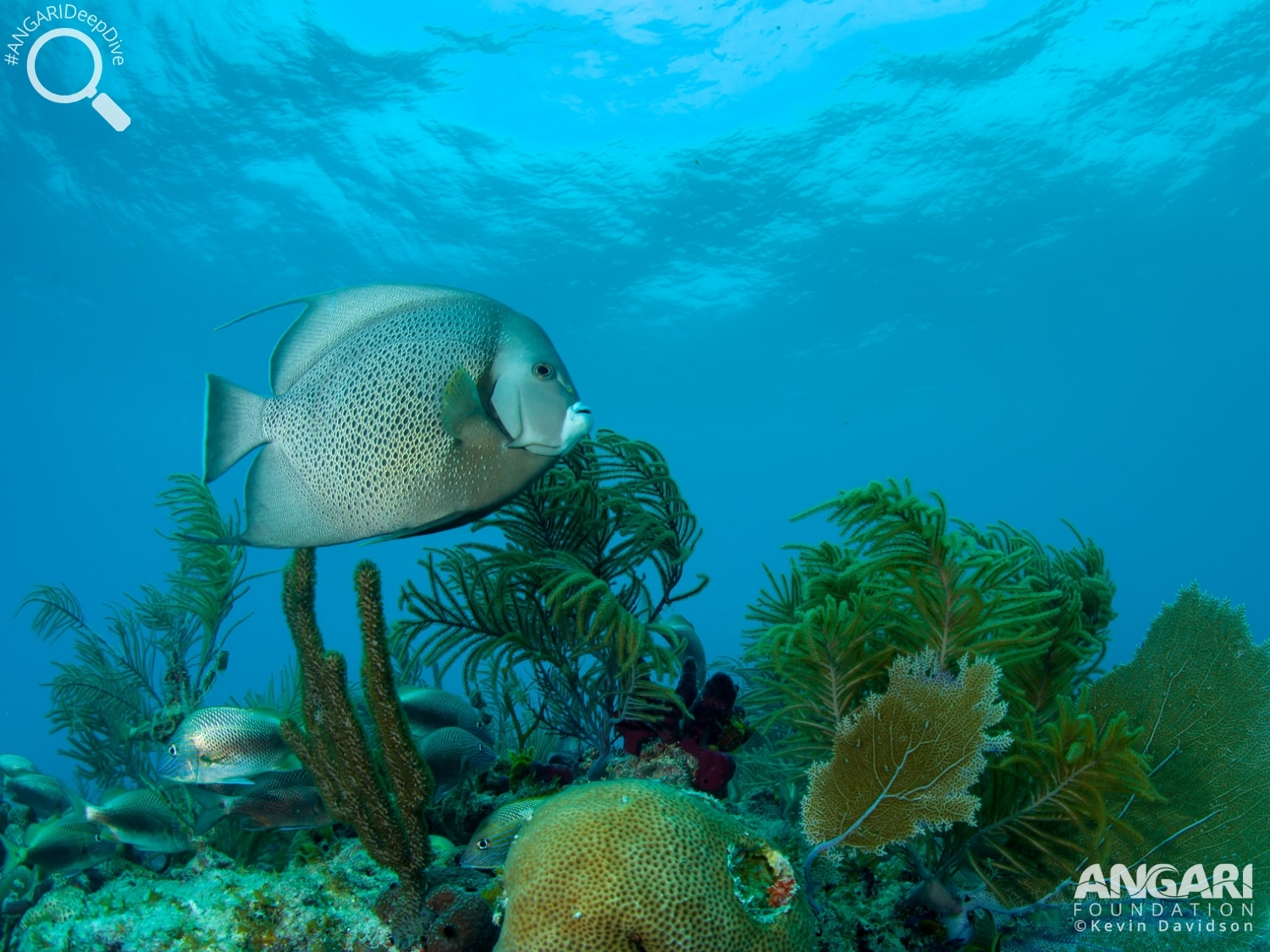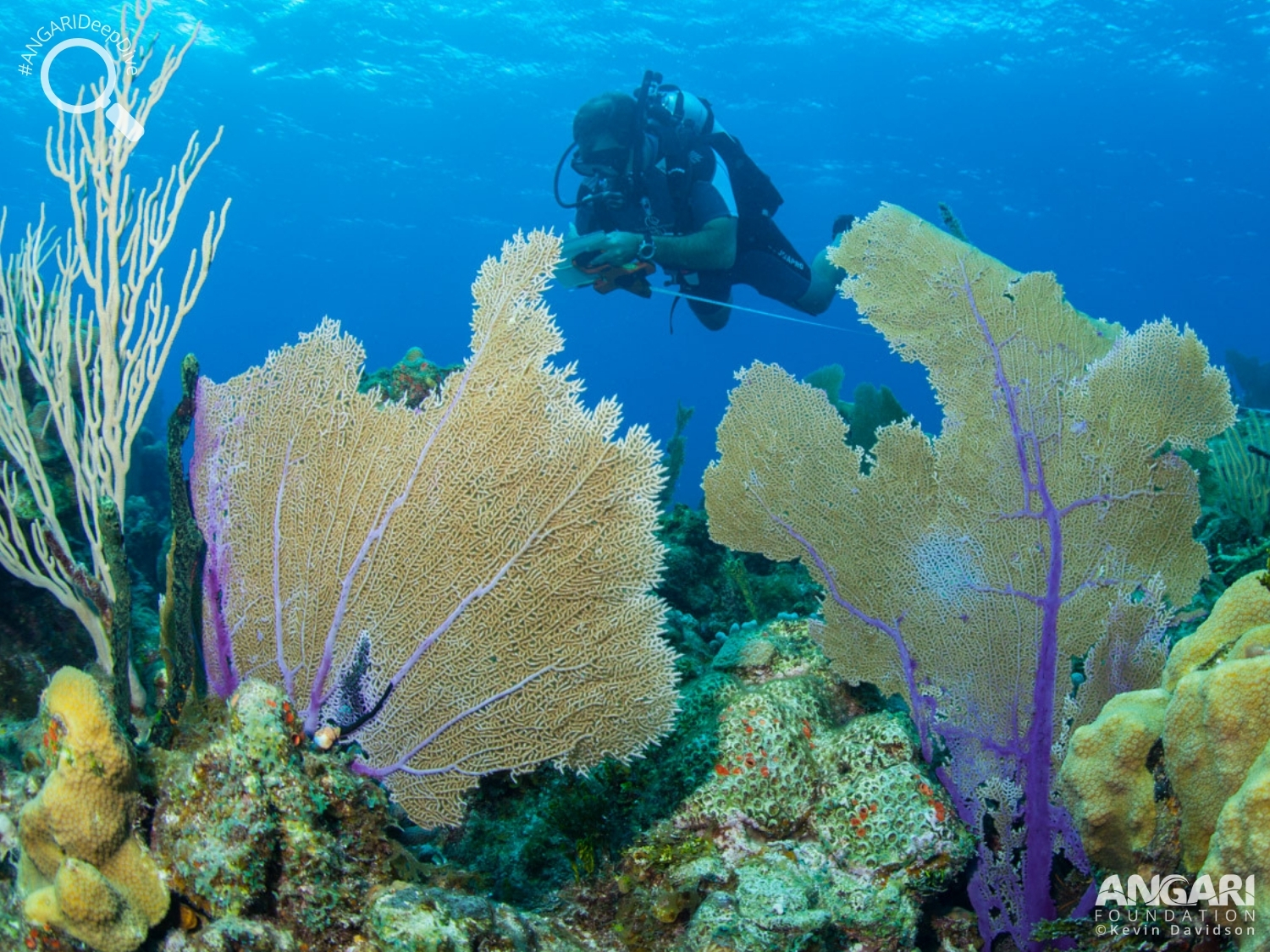Often spotted on the ocean’s surface, by-the-wind sailors vary in color from blue to purple and rely on the wind to get around.
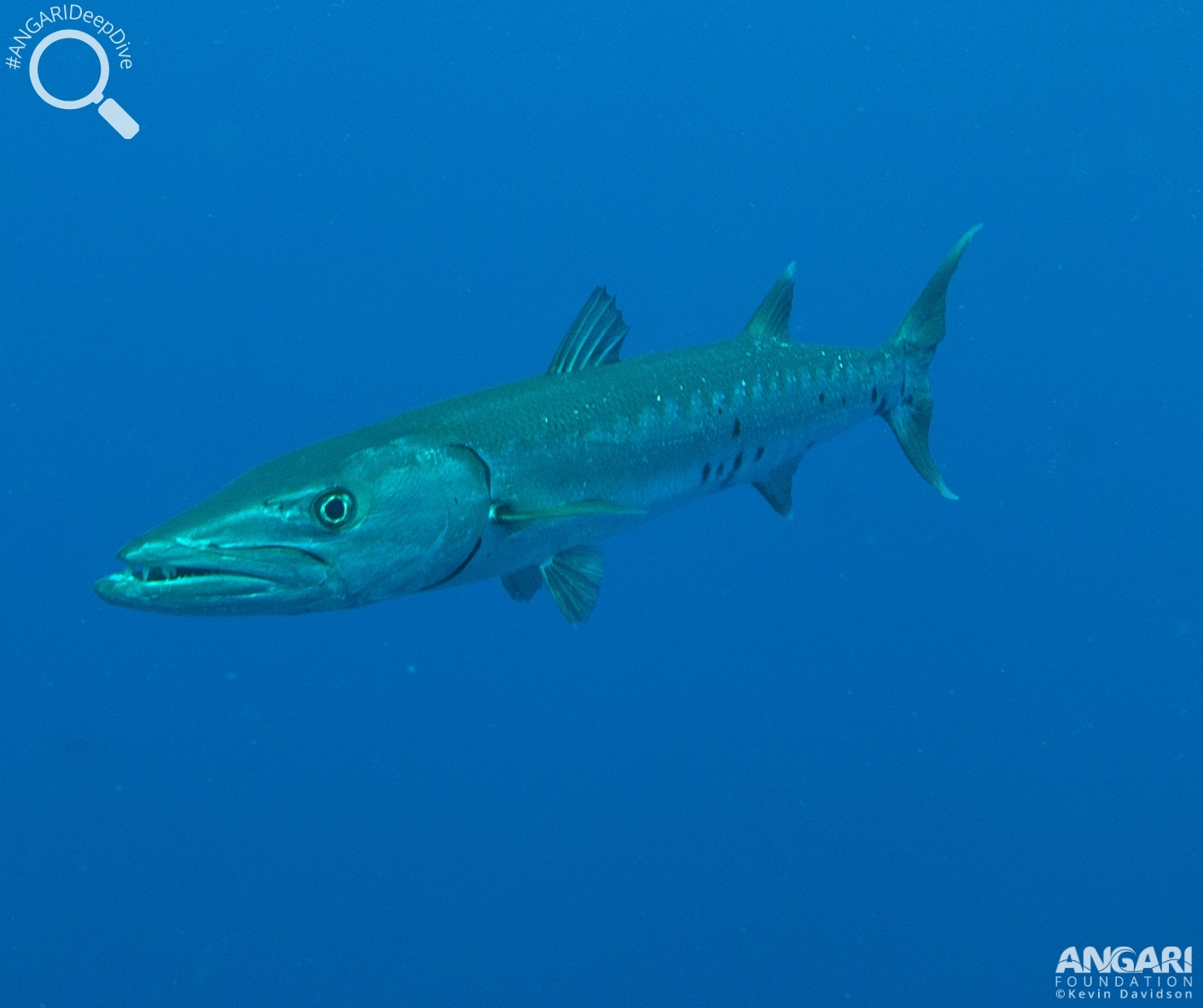
Great Barracuda (Sphyraena barracuda)
The great barracuda (Sphyraena barracuda) is a long tubular fish with an identifiable pointed snout and a mouth filled with two rows of teeth. One way to identify a great barracuda from other barracuda species is by the dark spots on the lower side of their bodies. Read on for more exciting facts about this intriguing fish species.
#1: Where can you find a great barracuda?
The great barracuda is a species of saltwater fish that can be found in both tropical and subtropical waters worldwide. You will likely find an adult great barracuda among reefs and swimming at the surface in the open ocean. Juveniles will spend their time maturing in different habitats, such as mangroves and seagrass beds that provide protection from predators.
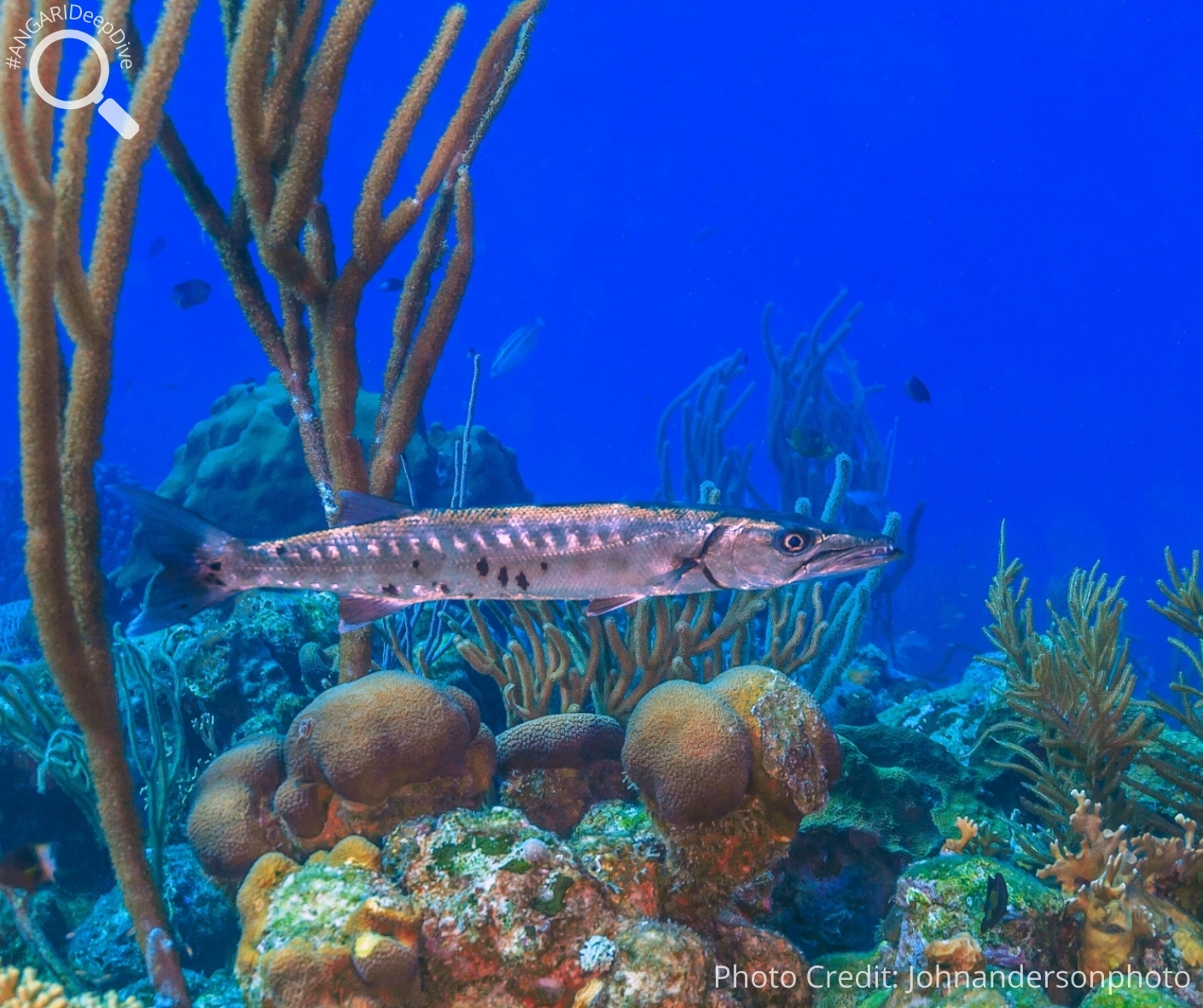
#2: Great barracuda are loners.
If you come across a great barracuda, it will likely be on its own. Great barracuda tend to be a solitary fish species but will occasionally be seen in a school during mating season.
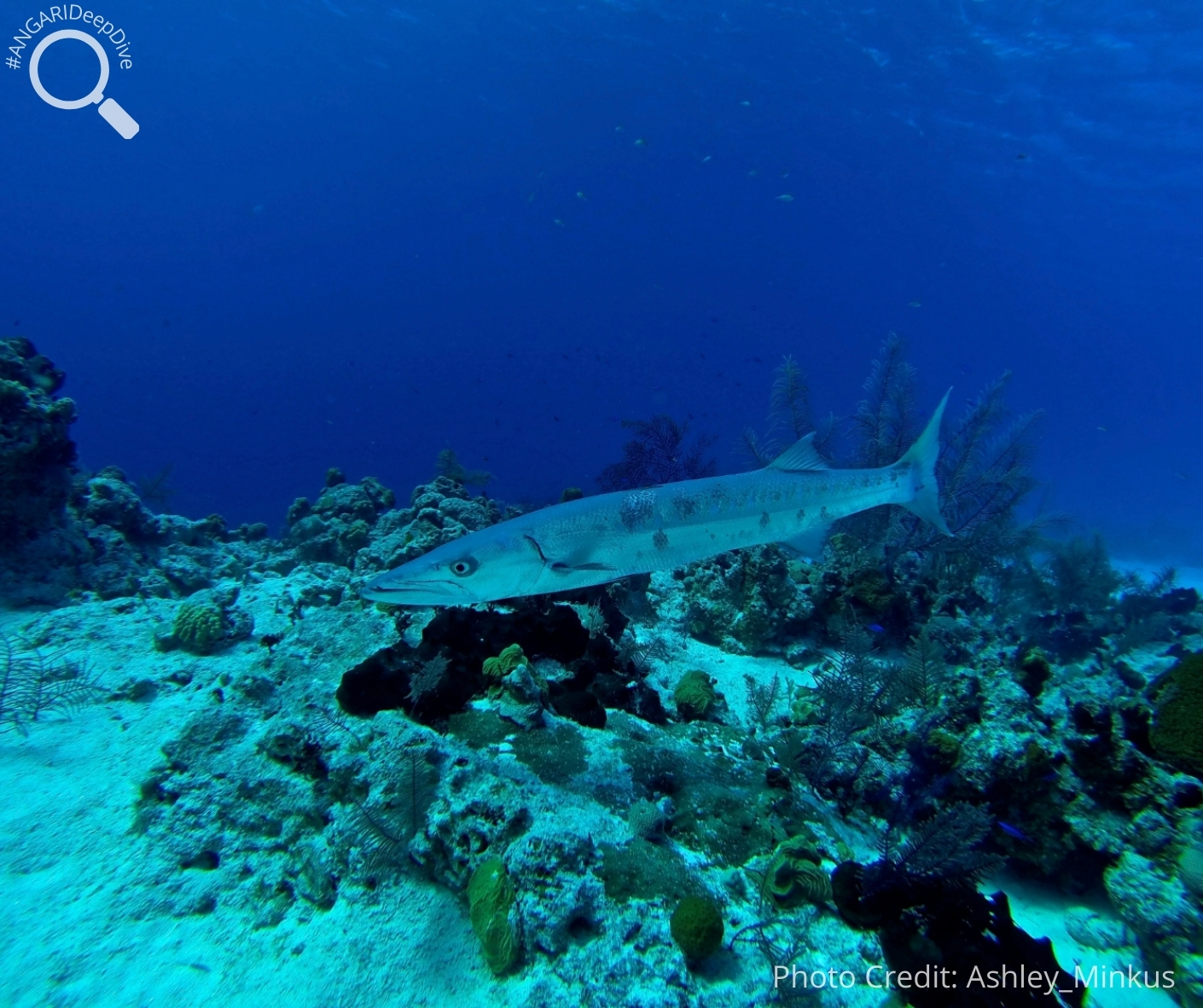
#3: Great barracuda are one of the largest species of barracuda.
The great barracuda is a large fish and can reach up to 2 meters (6.5 feet) long and weigh as much as 50 kilograms (110 lbs). Due to their large size and speed, the great barracuda has very few predators.
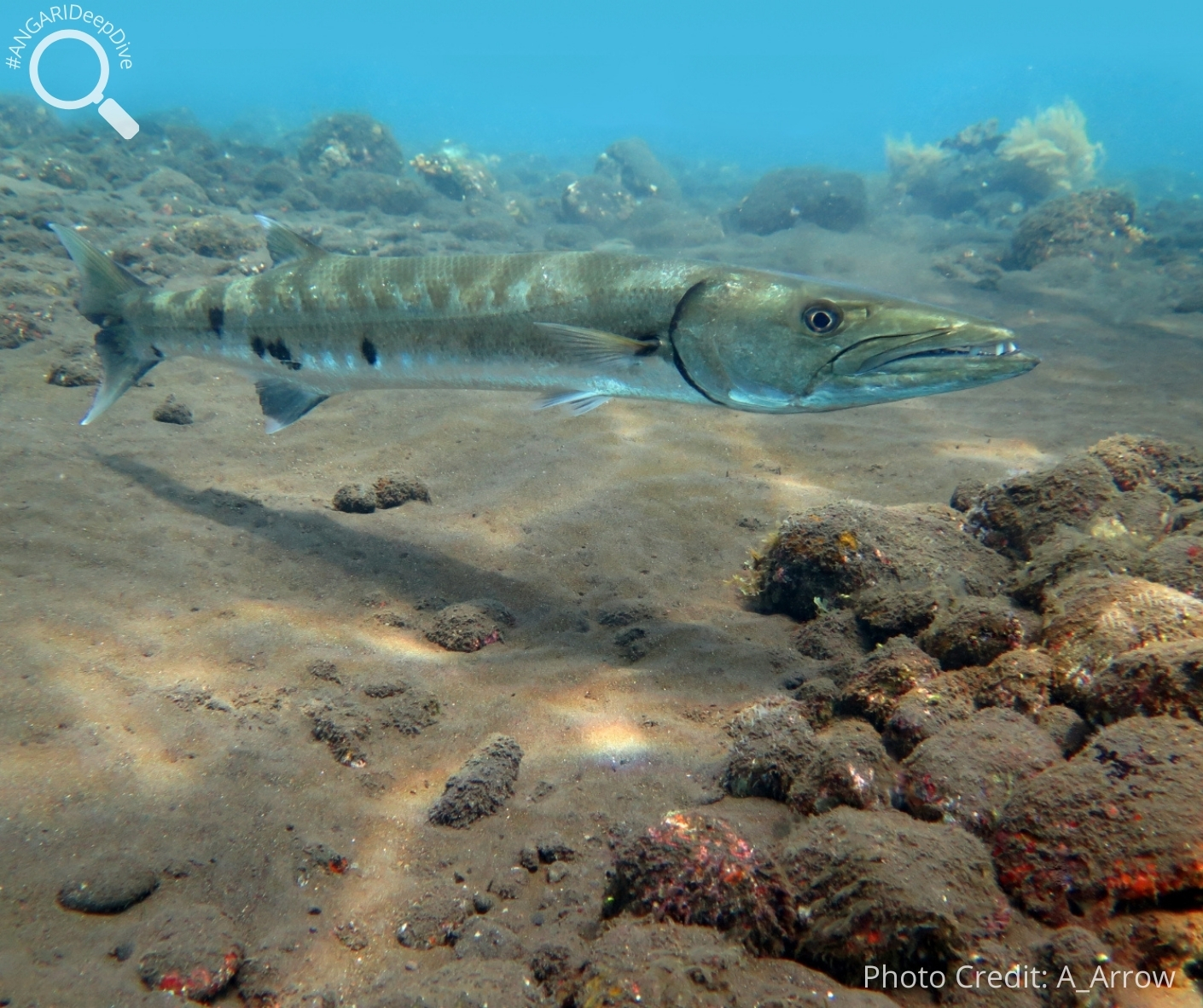
#4: What is the lifespan of a great barracuda?
It is estimated that a great barracuda can have a lifespan of up to 14 years, and on average a great barracuda will become sexually mature at two years of age for males and nearly double that to four years for females.
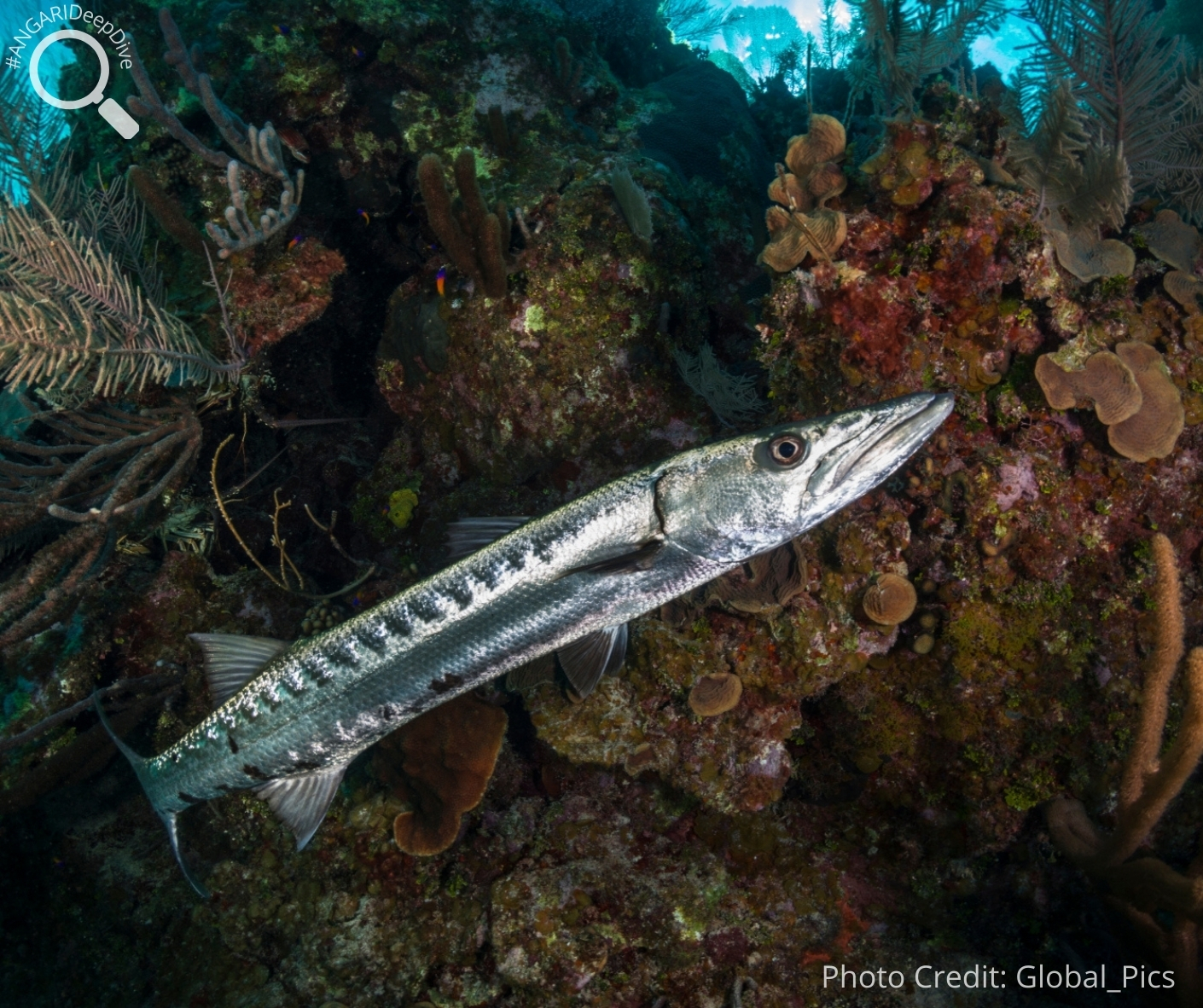
#5: Great barracuda are extremely inquisitive.
The great barracuda is naturally a very inquisitive fish and drawn to shiny objects that resemble their prey. There have been cases of mistaken identity when they will closely approach or interact with divers with shiny equipment or jewelry. The great barracuda will also not hesitate to grab a free meal from someone spear fishing.
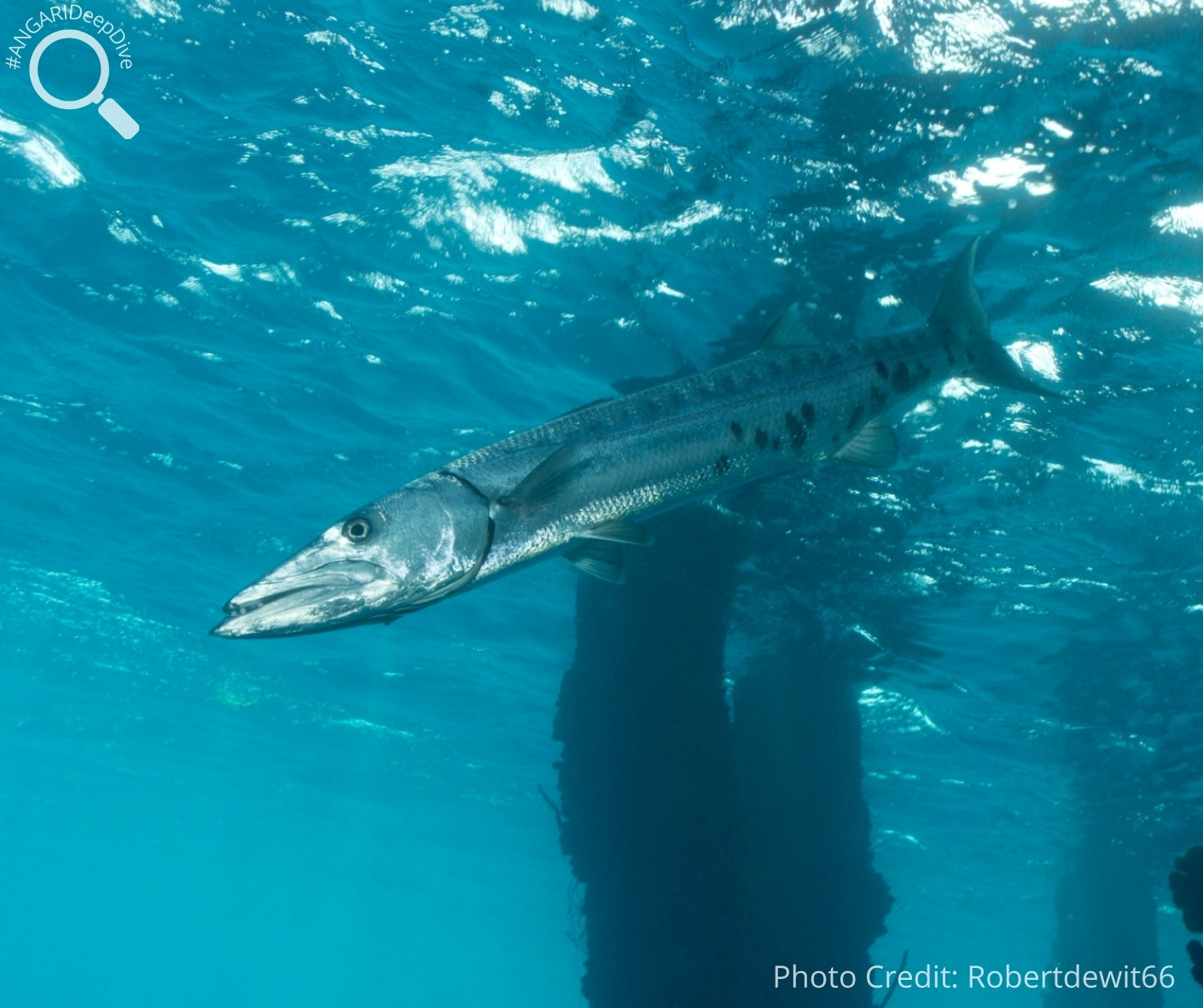
#6: How is the great barracuda adapted as a predator?
The great barracuda is an opportunist hunter and a very well equipped predator. They have a large jaw extension and two rows of sharp teeth allowing them to efficiently prey on large fish. One row consists of small razor-sharp teeth and the other row has larger teeth used for piercing their prey. Both rows work together for effective hunting and fit together to allow the barracuda to fully close its mouth.
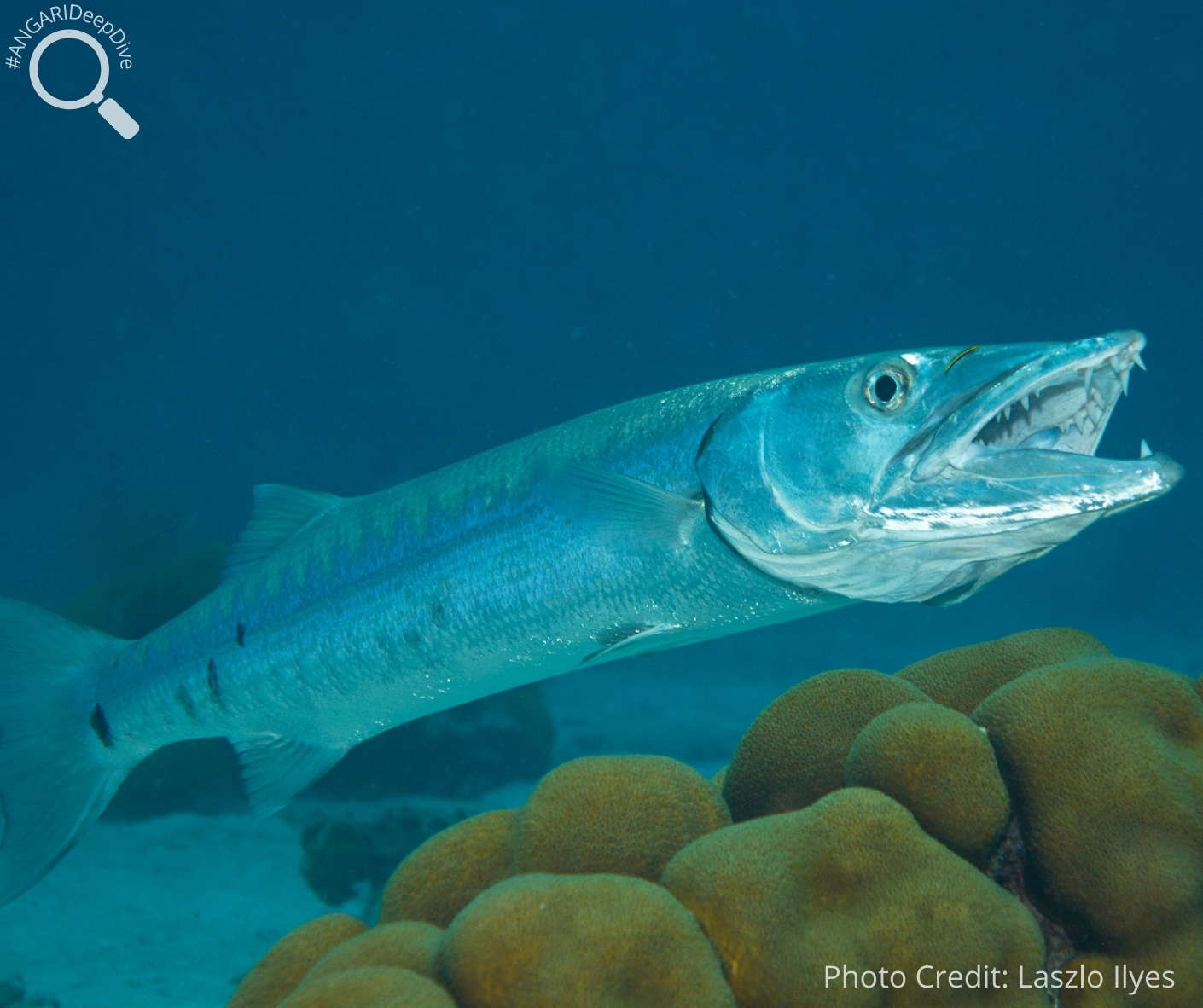
#7: Great barracudas are fast!
Another trait that makes barracudas productive hunters is their morphology. The body of a great barracuda is well designed for speed. They have a slender, cylindrical body that can travel through the water effortlessly. When you combine their body shape and strong muscles, the great barracuda can reach speeds of 36 mph (58 kph)!
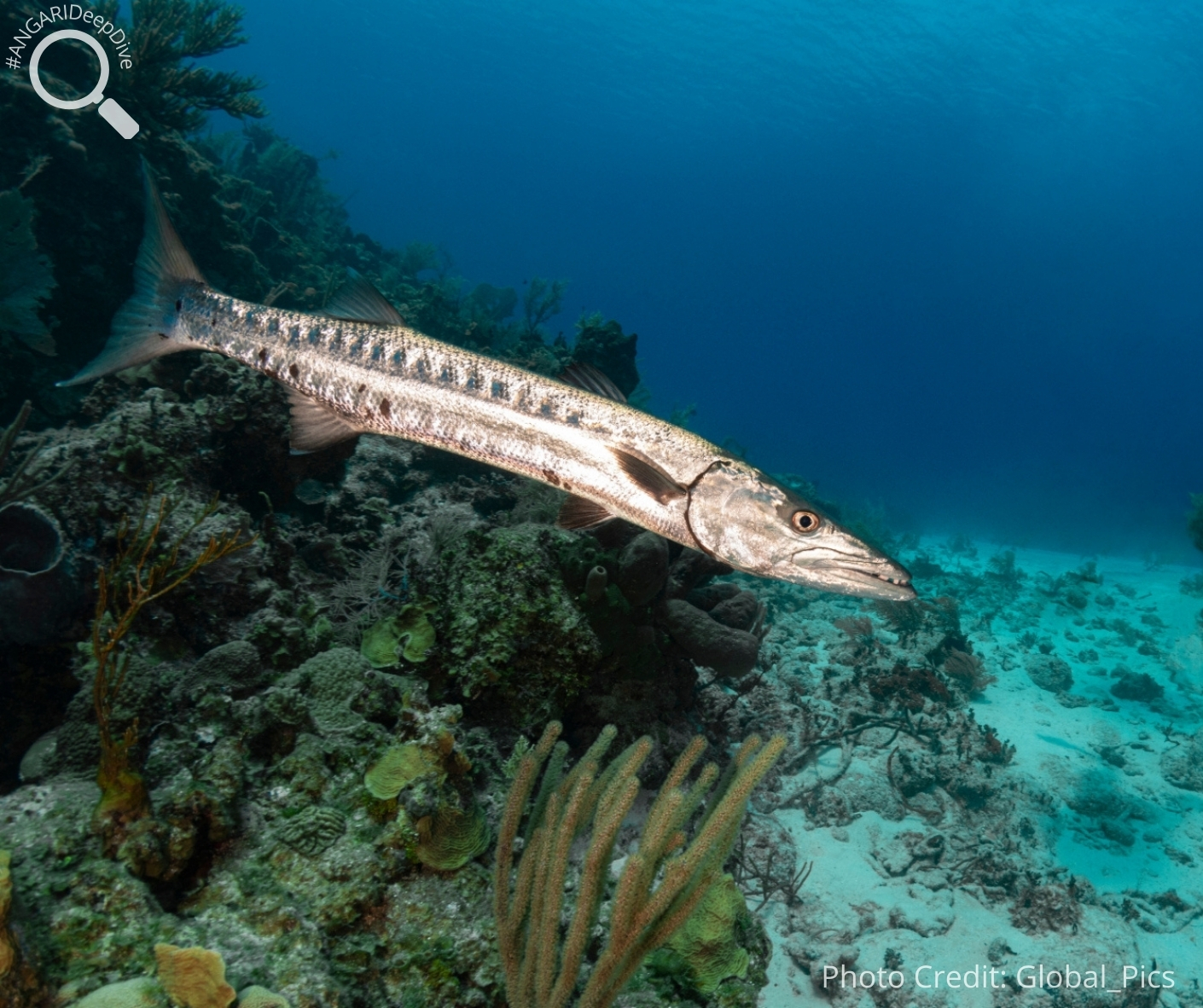
#8: Take caution when eating great barracuda.
Like many large marine fish, consuming adult great barracuda could result in ciguatera poisoning. Ciguatoxins are naturally occuring in small marine organisms living on reefs. Smaller fish feed on these organisms, and then larger fish prey on the smaller fish. As large fish continue to eat infected prey throughout their lifetime, ciguatoxins build up in their bodies. Due to great barracuda being an apex predator and at the top of the food chain, their muscles may accumulate large amounts of ciguatoxin, which could give any human ingesting them ciguatera fish poisoning.
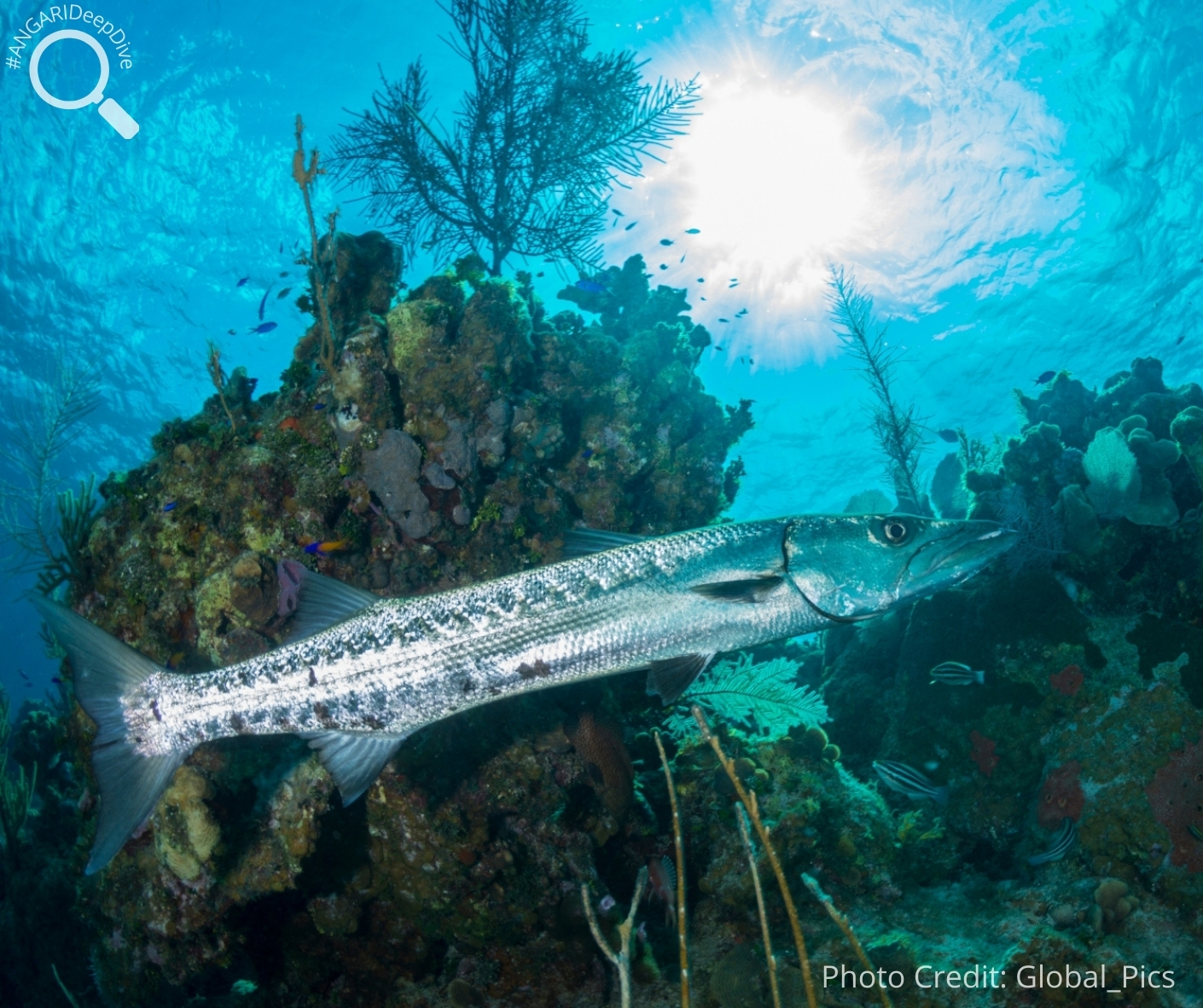
According to the IUCN Red List, the great barracuda is a species of least concern. Still, if you are out fishing in Florida make sure that you are complying with the Florida Fish and Wildlife Conservation Commission’s fishing regulations for your area, so we can ensure we maintain healthy population levels within the marine ecosystem. Great barracuda play an important predatory role by removing sick and vulnerable fish, allowing the ecosystem to stay balanced.
Additional Great Barracuda Resources:
1. Sphyraena barracuda – Florida Museum
2. Great Barracudas, Sphyraena barracuda – The MarineBio Conservation Society
3. Barracuda recreation fishing regulations – Florida Fish and Wildlife Conservation Commission


